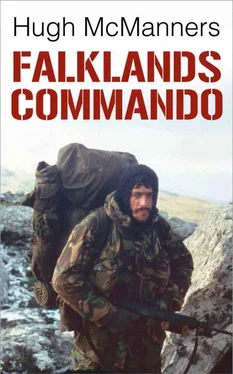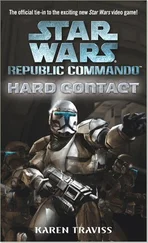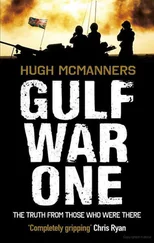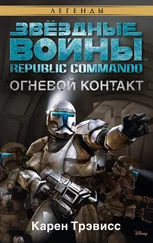Hugh McManners - Falklands Commando
Здесь есть возможность читать онлайн «Hugh McManners - Falklands Commando» весь текст электронной книги совершенно бесплатно (целиком полную версию без сокращений). В некоторых случаях можно слушать аудио, скачать через торрент в формате fb2 и присутствует краткое содержание. Город: London, Год выпуска: 2014, ISBN: 2014, Издательство: Nightstrike Publishing, Жанр: nonf_military, Биографии и Мемуары, на английском языке. Описание произведения, (предисловие) а так же отзывы посетителей доступны на портале библиотеки ЛибКат.
- Название:Falklands Commando
- Автор:
- Издательство:Nightstrike Publishing
- Жанр:
- Год:2014
- Город:London
- ISBN:978-0-992-81540-0
- Рейтинг книги:4 / 5. Голосов: 1
-
Избранное:Добавить в избранное
- Отзывы:
-
Ваша оценка:
- 80
- 1
- 2
- 3
- 4
- 5
Falklands Commando: краткое содержание, описание и аннотация
Предлагаем к чтению аннотацию, описание, краткое содержание или предисловие (зависит от того, что написал сам автор книги «Falklands Commando»). Если вы не нашли необходимую информацию о книге — напишите в комментариях, мы постараемся отыскать её.
Falklands Commando — читать онлайн бесплатно полную книгу (весь текст) целиком
Ниже представлен текст книги, разбитый по страницам. Система сохранения места последней прочитанной страницы, позволяет с удобством читать онлайн бесплатно книгу «Falklands Commando», без необходимости каждый раз заново искать на чём Вы остановились. Поставьте закладку, и сможете в любой момент перейти на страницу, на которой закончили чтение.
Интервал:
Закладка:
Captain Willie McCracken, on standby strapped into the second helicopter, was ordered to take off and intercept them in case they ditched in the sea. With dwindling fuel, Brown and co flew directly to safety – which took them over the top of the FPB (Fast Patrol Boat) which fired at them again.
They landed back on Alacrity with a bone-dry fuel tank. Only then were the bullet holes pointed out to the pilots, who were less-than-impressed.
Willie McCracken, in the second helicopter was listening to the radio transmissions while making notes for his own sortie. Much later he told me that as this drama unfolded, his pilot’s face, and he presumed his own, grew whiter and whiter.
It was also Chris Brown who, four days earlier, had been widely reported in newspaper accounts of the SAS’ Pebble Island raid, as the “cool, calm voice” directing naval gunfire onto the airfield during the SAS attack. His team gleefully reported to us that on this occasion he’d been everything but “cool and calm”.
The Orders Group and ‘Comms’ brief were held in Fearless’ make-shift chapel, a Portacabin lashed down onto the upper Sea Cat deck, the ship’s only spare room. Overwhelming pressure on space had relegated the proper chapel to become the Commodore Amphibious Warfare (COMMAW) staff office – of Michael Clapp, our ‘other boss’ after Julian Thompson. The 148 Battery code sheets and communications details (frequencies, schedules, etc.) were handed round like hymnbooks, but the grim note taking during the sermon ended any similarity to the Portacabin’s designated use.
At that meeting, we learned more about what Willie McCracken’s team were doing. With Bombardier Jackson and crew, Willie had landed, a week ahead of the main landing, in the area of Sussex Mountains, to the south of San Carlos Water.
They’d been dropped off by rubber boat from a mother ship that had steamed south into Falkland Sound. On landing, they’d buried a cache of spare food and ammunition, and were now making their way very carefully and slowly by night to an OP position to await the rest of us. Their task was to send back information if it was important enough (specifically if the area was suddenly reinforced), and then when the landings actually took place, to fire gunships at enemy targets. Once the troops were ashore they were to link up with the Paras, who were to create a defensive position to the south of the beach-head.
Afterwards Willie told us of the very nasty shock they’d experienced soon after being dropped off south-west of San Carlos. They’d carried the heavy cache away from the landing point, dug a hole and buried it using very careful camouflage. This activity would have been the most worrying part of their insertion, as had their landing been observed, they’d be easy to attack. They left the area as quickly as they could move.
Once well clear of the landing area and cache, they slowed down to start the very careful business of surveying the ground ahead with night-scopes, checking behind that they weren’t being followed, then moving deliberately forward. Jacko, Willie’s team second-in-command, was ‘tail-end Charlie’. In checking behind, he got the uneasy feeling they were being followed. They stopped and went into ‘all-round defence’, lying on the ground in a circle facing outwards, weapons at the ready.
To their horror, a figure appeared moving up over the ridge behind, coming towards them. Then several others appeared carefully spaced apart, in single file, moving cautiously, stopping and peering forward, then moving on with balanced steps. This was the nightmare that the team had hoped would never happen. They’d been detected. They made their 66-mm anti-tank rockets ready, laid out grenades to hand and prayed this patrol would not find them.
More figures came up over the dark ridge, and as they drew closer seemed to be talking, and it wasn’t English. This patrol grew from being a section to a platoon of thirty or so, then an even larger group as more of the figures shuffled carefully up out of the gully. The talking became louder and the cautious peculiarity of their gait more pronounced as they got closer, until it was clear they were penguins.
The relief and release of tension gave way to amusement, but this was short-lived. A very large number of these birds had sensed the presence of the team and were investigating. When they got close enough to determine they were human, the birds erupted into a sudden panic, rushing off screaming with indignation. The patrol carried on, fervently hoping that there were no Argentinians in the area to notice the disturbance and investigate.
Already I was thinking ahead – not just about our first operation to come, but what we would do after that, and how to minimise confusion.
I decided not to take the whole team across to Antrim for the three-day SBS op’, but leave Des on Intrepid . Experience told me that a sensible person who knows exactly what you are doing is invaluable for looking after the kit you’ve left behind, getting anything to you that might subsequently be required, then making preparations for when you return. Des was seriously unimpressed with my choice, but understood the logic and did a good job. I promised him ‘pole position’ on the next operation.
It’s extraordinary how dreadful it feels to be left behind, especially when the others are doing something dangerous. The strong desire to be there with the team is opposed by the natural sense of self-preservation that insists you are better off in a warm, safe ship. Unfortunately, any balance is upset by a strong feeling of guilt at being safe when the others are not. (The equation was to become even more complicated when it became clear that remaining aboard ships in San Carlos Water was not necessarily the safe option.)
Once Orders were given, questions answered and farewells completed, 148 Battery dispersed, FO1 to Intrepid to get our gear ready to move to HMS Antrim and join the SBS. After all the confusion and uncertainty, it was a relief to know what we were doing.
My worries and misgivings, for instance over the effect of Argentine air strikes, were put aside and I concentrated on the things that I could actually do something about. From now on, I had no time for anything outside my own little bubble of activity. In fact, I remember feeling glad that it was someone else’s responsibility to worry about the Argentine Air Force – illogically, as we were as likely to suffer their attentions as anyone else.
The next day, 19 May, was spent in that most typical of activities – waiting for a helicopter. We eventually flew to Antrim with our equipment via several other ships in the now-familiar nautical version of musical chairs. Lunchtime saw us temporarily stranded in an intermediate ship, so we had a meal and arrived finally on Antrim as night was falling.
As we’d left Fearless , the SAS had been flying in from an RFA, ready for a diversionary raid on Darwin and Goose Green at the time of the main landings at San Carlos. On reaching Antrim , we learned that one of Intrepid’s Sea King helicopters had crashed into the sea whilst shifting men and equipment ready for the assault. A search for survivors was being made. Rumour suggested this Sea King was carrying SAS.
I later learned this was true. The aircraft was carrying people I knew from D Squadron (SAS), and an RAF forward air controller Garth Hawkins who I knew from the very sociable and civilised forward air control exercises he’d organised in fields near to the best pubs in mid Wales. The pilot also turned out to be a friend, who escaped with only cuts and shock – all these details gradually emerging much later.
One of the SAS troopers who survived later told me that, as the helicopter was under water and going down, there was terrible panic as people fought to escape. He’d managed to get out, except that his boot became caught in criss-cross webbing at the back of a seat. He said he felt a hand grab his ankle and then a sawing movement. The hand tapped his ankle firmly twice – like a judo wrestler when he submits to an arm lock. He’d been cut free. He swam to the surface and was rescued, his benefactor one of the trapped eighteen who drowned.
Читать дальшеИнтервал:
Закладка:
Похожие книги на «Falklands Commando»
Представляем Вашему вниманию похожие книги на «Falklands Commando» списком для выбора. Мы отобрали схожую по названию и смыслу литературу в надежде предоставить читателям больше вариантов отыскать новые, интересные, ещё непрочитанные произведения.
Обсуждение, отзывы о книге «Falklands Commando» и просто собственные мнения читателей. Оставьте ваши комментарии, напишите, что Вы думаете о произведении, его смысле или главных героях. Укажите что конкретно понравилось, а что нет, и почему Вы так считаете.












